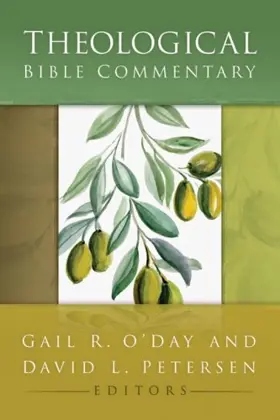

Theological Bible Commentary
Pages
504 pages
Publisher
Westminster John Knox
Published
4/14/2009
ISBN-13
9780664227111
Reviews
I've occasionally used this commentary for my own personal study for about a year now. I initially bought this commentary since it was highly rated on bestcommentaries.com. I know at least one of the editors comes from a theologically liberal background, but I didn't think the book was that bad until I read the commentary on Titus. If you like the fact that some commentaries in this book are written by people who also teach feminist-womanist, post-colonial, and postmodern bible interpretation, this commentary is for you! But seriously, the commentary on Titus is egregious and completely disrespects the authority of God's word. Here's a small list of her claims:
- The letter is a pseudepigraphical and pseudo-epistolary fiction.
- The instructions on "sound doctrine" reinforce cultural expectations of Greco-Roman household codes.
- The formulaic Christian phrases "so the word of God may not be discredited" reveals the author's appropriation of Christian tradition to enforce cultural codes.
- The author uses religious language associated with a Roman cult to articulate the gospel, yet shows intolerance towards false teachers, begging for insight into his own double standard.
- The author responds to the evolving church with his own quest for apostolic authority.
- The writer's rhetoric reveals the influence and appropriation of diverse cultural ideas and religious beliefs and bears witness to one "eternal truth" of the church, that it never operates generally but always contextually.
- The church "is always engaged in particular contexts, navigating authority, and discerning the presence and purpose of God in the midst of human culture and history" (444).
Anyways, I'd love to ask the author how she knows her rhetoric is accurate and not just a product of her feminist postmodern cultural context and appropriating post-colonial cultural expectations and tradition. Sorry, It's so hard to take a postmodernist seriously :)
If you are a Christian who respects the authority of God and his word, don't buy this commentary. Thought I'd post this review to knock down the ratings of this book so others don't waste their money like I did.
As the introduction to this one-volume commentary suggests, the shape of biblical studies has experienced significant change during the last half century. The ideal, inherited from the Enlightenment, that biblical exegesis should be free from the shackles of any dogmatic theological framework prevailed in the two centuries or so of “modern” scholarship. Biblical study was to be pursued in a rigorous, “scientific” way, following where the evidence led. Scholarship “without presuppositions,” even if difficult to achieve, was the gold standard, as Rudolf Bultmann argued in an essay widely read when I was beginning doctoral study in the dark ages of the 1960s. The editors of this volume rightly note that the ethos of the contemporary scene, whether or not we describe it as “postmodern,” looks very different. Presuppositions and commitments are not only acknowledged to be an inevitable feature of scholarship; they can be important tools for meaningful engage-ment with the biblical text. To recognize the place from which one reads a text is not only an act of honesty but a foundation for effective appropriation. Presuppositions are not sacrosanct but are both inevitable and potentially productive. Biblical scholarship of the last half century is replete with this self-conscious hermeneutical stance. The variety of engaged readings is familiar.
[Full Review]

